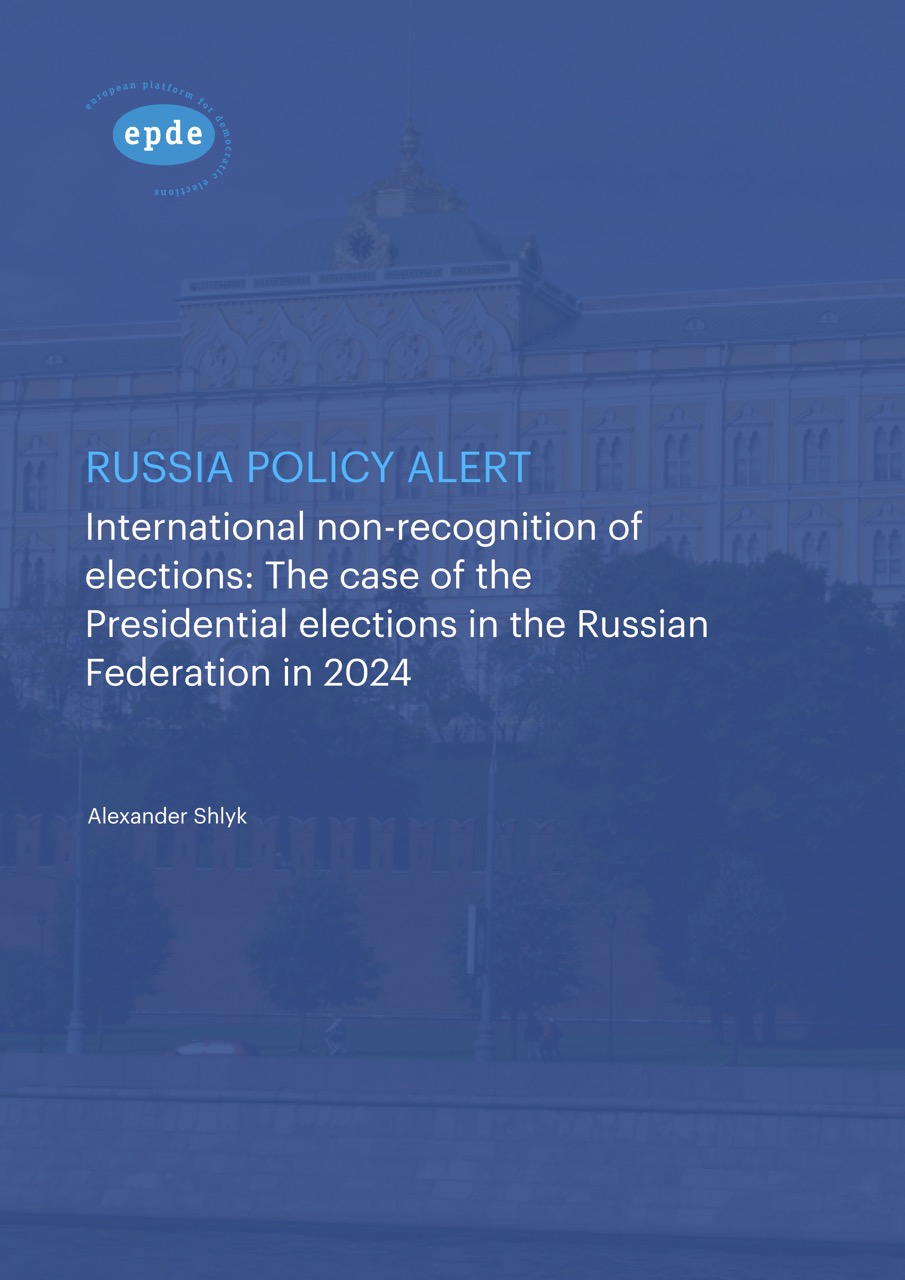
The Presidential elections in the Russian Federation in March 2024 are being conducted among ongoing military aggression against neighbouring Ukraine and unprecedented internal repression against political opposition and civil society. Massive human rights violations, such as crackdowns on independent media and restriction of freedom of assembly and freedom of association, affect all aspects of the election campaign.
In violation of international law, the Russian authorities are preparing to conduct elections in the Ukrainian territories occupied since 2014 as well as those occupied following the full-scale invasion in 2022. Official data indicate that up to 5m voters may be forced to participate in the elections in these territories, equivalent to about 4.8 per cent of the total number of voters.
Substantial grounds for putting the legitimacy of the elections under question are:
A. Artificial and illegal extension of suffrage to Ukrainian citizens residing on the temporarily annexed territories, which damages the connection between the citizenry and the authority of the government established by international law.
B. Illegal extension of the term limits for the incumbent through the unconstitutional referendum in 2020.
C. Severe limitation of political pluralism that deprives voters of an opportunity to make a choice among distinct alternatives.
D. Severe limitations of fundamental rights and freedoms that prevent the voters from forming a political opinion to form their will in the elections.
E. Procedural Shortcomings.
F: The exclusion of international election observation through the OSCE and the suppression of independent domestic election observers additionally increase concerns over the legitimacy and credibility of the electoral process.
For non-recognition to be meaningful, it should be followed by concrete steps, such as the introduction of sanctions on those officials being responsible for the systematic organisation of massive election fraud, downscaling of diplomatic relations, and as the ultimate consequence non-recognition of the incumbent.
The failure to challenge these elections on the other hand could set a bad precedent in Europe. It could be used by the regime’s propaganda both as a legitimation of the illegal occupation of Ukrainian territories and of the violation of international legally binding standards for democratic elections.
Subscribe to our
newsletter
Sign up for our monthly newsletter
and receive the latest EPDE news
Sign up for our monthly newsletter and receive the latest EPDE news
Subscribe to our
newsletter
Sign up for our monthly newsletter
and receive the latest EPDE news
Subscribe to our
newsletter
Sign up for our monthly newsletter and receive the latest EPDE news